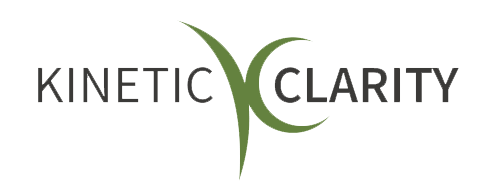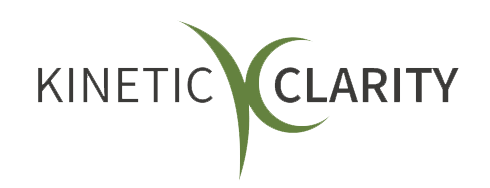9 Benefits of Being Self-Aware at Work
Self-Awareness Today

In today's fast-paced work environment, it is essential to have a high level of self-awareness to succeed. The more self-aware you are, the better you can respond to your environment and regulate your responses.
Self-awareness is the ability to recognize and understand one's emotions, thoughts, behaviors, and impact on others. Being self-aware at work has numerous benefits that can improve job satisfaction, enhance professional relationships, as well as increase leadership abilities.
Higher Emotional Intelligence
One of the primary benefits of being self-aware at work is the development of emotional intelligence. Emotional intelligence involves the ability to recognize, understand, and manage one's own emotions, as well as the feelings of others.
By developing emotional intelligence, individuals can better understand themselves and their colleagues, leading to improved communication and collaboration. A smoother relationship with colleagues, in turn, can result in increased productivity and better overall job performance.
Stress Management
You know you get stressed at work, but are you aware of what your triggers are? If you’re self-aware, you are adept at pinpointing what your stress points are. Of course, you can’t always avoid the things that cause you stress, but if you can recognize them ahead of time, you are more likely to be prepared for them.
Out of all survey respondents, 54% indicated that they found self-awareness to be particularly helpful in coping with stress. And being prepared is half the battle. Knowing beforehand will also equip you with tactics for processing your stress factors. For example, if you know that a meeting with a particular co-worker always results in tension, you’ll learn how to prepare and guide the meeting to go more smoothly.
Enhanced Leadership Abilities
Self-awareness can also improve leadership abilities. Self-aware leaders have a better understanding of their strengths and weaknesses. This allows them to make more informed decisions, delegate tasks effectively, and communicate with their team members in a respectful and effective way.
In a survey, 45% of people surveyed, indicated that they believed self-awareness made them better at leading others. Additionally, self-aware leaders are better able to empathize with their team members, leading to increased trust and respect among colleagues. When your team sees you as “one of them,” they are able to relax more around you.
Time Management
All people have a time of day when they are “on” and times when they’re in a slump. When you have a healthy amount of self-perception, you’ll be able to recognize when your best time of day is to focus on your work.
For example, if you’re most focused and productive in the morning, you’ll know to schedule the bulk of your responsibilities before you begin to fade in the afternoon.
You are also more likely to easily recognize what your most significant distractions are. Once you’ve identified what can cause you to lose focus from your work (looking at you, social media!), you are more likely to avoid those distractions.
Increased Job Satisfaction
Self-awareness can also lead to better job satisfaction. By understanding one's values, interests, and goals, individuals can align their work with their personal values and find greater meaning and purpose in their jobs.
Furthermore, with self-awareness, people achieve a better work-life balance, leading to reduced stress and burnout. They have better capability than others to realize when work is starting to creep into their personal lives and make necessary adjustments.
Respond Better to Feedback
Giving feedback is an integral part of being a business leader. However, receiving it is just as important. Every employee of the organization can learn from what others have to say about their performance, including management.
Feedback isn’t always comfortable; it can point out an individual’s flaws and other less-than-stellar qualities. But a self-aware person has the tools to process the information they are given and evaluate its worth. They will connect with constructive criticism and understand how to improve and make the needed changes.
Improved Professional Relationships
By understanding their own communication styles and how others perceive them, individuals can communicate more effectively with their colleagues, leading to better collaboration and teamwork. Clear and effective communication leads to more positive interactions, avoiding misunderstandings and negative statements.
Self-aware individuals are skilled at recognizing how their words and actions impact others. They assess how their communication can be interpreted before they speak, giving them a chance to edit any statements that may lead to conflict. As a result, they can tailor their communication style to the needs of others, build trust and rapport, and foster a culture of collaboration and respect.
They can navigate conflicts more effectively, as they can better manage their emotions and communicate their needs constructively. In addition, self-awareness can lead to increased trust and respect among colleagues, leading to better conflict resolution and a more positive work environment.
Higher Confidence
Self-awareness is a critical component in building confidence at work. A person aware of their strengths and weaknesses is better equipped to take on challenges and confidently make decisions.
By understanding their abilities, individuals can identify areas where they need to improve and take proactive steps to develop new skills or seek additional training. Self-awareness also helps individuals recognize their accomplishments and acknowledge their successes, which can further boost confidence and self-esteem. They then dare to step outside their comfort zone to try new tasks and approach work from a different perspective. This allows them to take on new challenges and achieve their goals.
Improved Personal Development
Finally, self-awareness can lead to improved personal development. When a person has a solid perception of their weaknesses, they can identify areas for growth and development. They strive to improve in the areas that they most need it. Self-aware people develop strategies to enhance their personal and professional growth.
By recognizing their limitations, individuals can focus on improving their weaknesses and building upon their strengths, leading to greater job satisfaction and personal fulfillment. But they also are mindful of their strengths, which they learn to emphasize.
Self-awareness also allows individuals to take ownership of their actions and behaviors, facilitating personal accountability and responsibility. Through self-reflection and self-assessment, individuals can set goals, establish priorities, and track their progress, contributing to a sense of purpose and direction in their personal and professional lives.
Wrapping Up
Being self-aware at work has numerous benefits that can improve job satisfaction, enhance professional relationships, and increase leadership abilities. By practicing self-awareness, individuals can better understand themselves and their colleagues, leading to increased productivity and better overall job performance. If you're not already practicing self-awareness in the workplace, we encourage you to start today.












